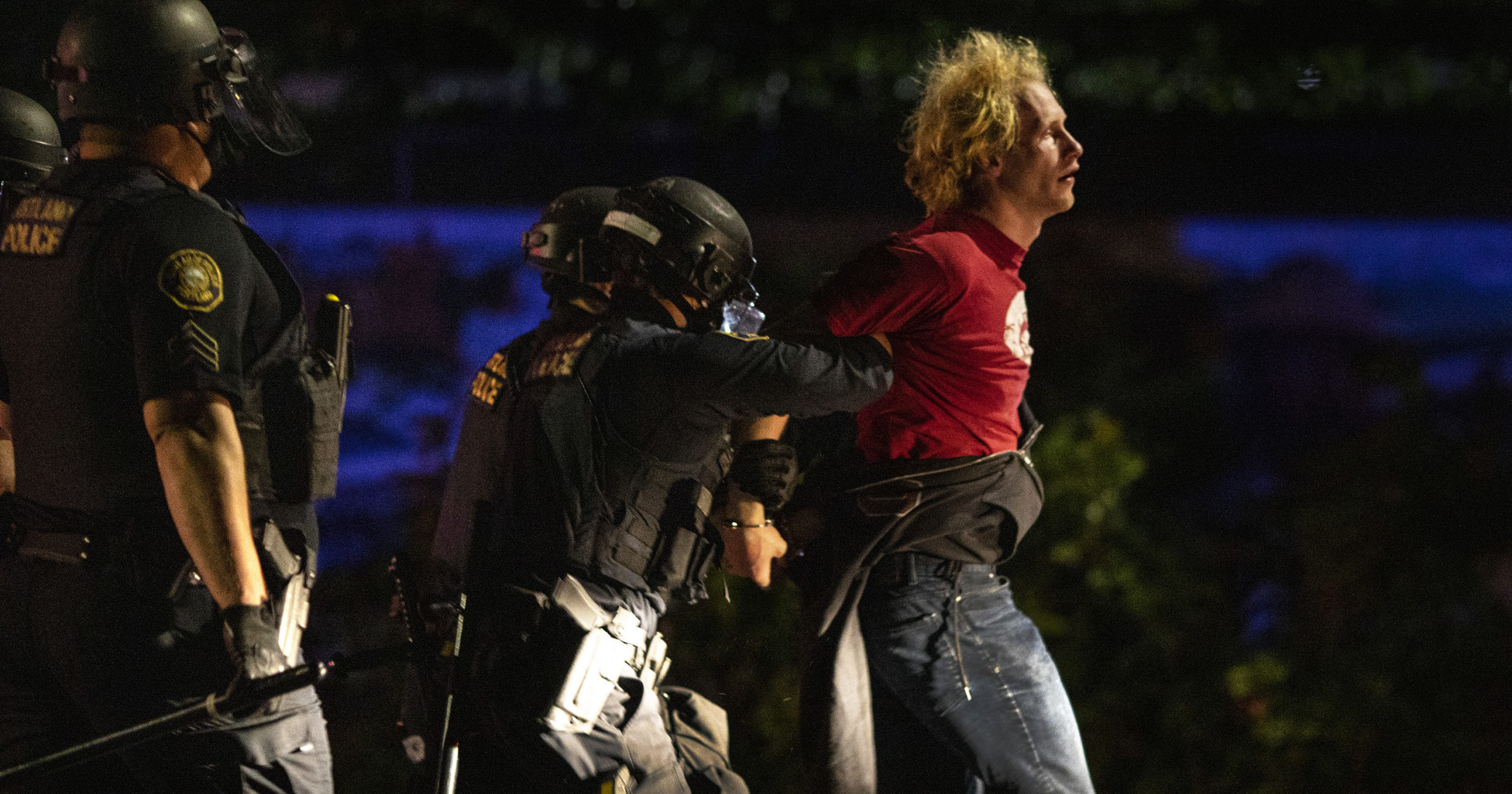
'People Will Die': Anti-Police Push Sees Deadly Consequences in Portland
Elmer Yarborough got a terrifying call from his sister: She wept as she told him two of his nephews may have been shot in broad daylight as they left a bar in Portland, Oregon.
He drove there as fast as he could. An officer told him one of his nephews was heading to the hospital and the other, Tyrell Penney, hadn’t survived.
“My sister, Tyrell’s mom, was on the phone; I just said, ‘He’s gone.’ And I just heard the most horrific scream that you could ever imagine,” Yarborough said.
When Penney was killed last summer, unrest was roiling liberal Portland as protesters took to the streets nightly to demand police defunding.
At the same time, Oregon’s largest city was experiencing its deadliest year in more than a quarter-century — a trend seen nationwide.
Responding to protesters’ demands, the mayor and City Council cut several police programs from the budget, including one Yarborough believes could have saved his nephew.
A specialized unit focused on curbing gun violence was disbanded a month before Penney, a 27-year-old man visiting from Sacramento, California, was killed on July 25.
“Without a doubt, I think it is a possibility that my nephew could still be alive if [the Gun Violence Reduction Team] was not dissolved,” Yarborough, a crisis response volunteer for Portland police, said.
“I cannot say for sure if he would, but what I will tell you is had it not been my nephew that was saved, it probably could have saved the life of someone else,” he said.
More people died of gunfire last year in Portland — 40 — than the entire tally of homicides the previous year. The number of shootings — 900 — was nearly 2 1/2 times higher than the year before.
The spike has continued this year, with more than 150 shootings, including 45 people wounded and 12 killed so far.
Police had warned of the possible repercussions of ending the unit, pointing out cautionary tales in other cities that had made a similar move.
Portland police quoted former Salinas, California, Police Chief Kelly McMillin: “Not to be overly dramatic, but if you lose the unit which focuses on removing firearms from the hand of violent offenders, people will die. It’s really just that simple.”
Stockton, California, began disbanding and defunding police units dedicated to gun violence in 2010. In 2011 and 2012, the city’s homicide rates reached record highs.
After the city restored the units, homicides significantly declined, according to data reported by police.
But some claim it’s unlikely those changes influenced gun violence.
“I believe if [the Gun Violence Reduction Team] were [around] today, we would still see a substantial, if not identical, increase in shootings in Portland,” Mayor Ted Wheeler said in January. “This is clearly part of a larger national trend.”
Wheeler, who is also police commissioner, announced the unit’s disbanding last June and reassigned its 34 officers to patrol. He described it as an opportunity to “reimagine” policing and stripped $7 million in police funds.
The push was led by City Council member Jo Ann Hardesty. She cited a 2018 audit showing nearly 60 percent of people stopped by the gun violence team were black, though they make up less than 6 percent of the city’s population.
Nearly half of the 55 total homicide victims in 2020 were minorities, many of them from Portland’s historically black neighborhoods, according to city statistics.
So far this year, there have been 17 homicides — a concerning number considering there had only been one homicide in the same period in 2020.
Among the people shot to death last year were a 23-year-old Iraqi refugee; an 18-year-old recent high school graduate; and a 53-year-old woman caught in gang crossfire and killed in front of her husband.
The violence has left leaders and community members scrambling for solutions. Last month, police launched a squad of 15 officers and six detectives focusing on gun violence investigations.
That’s little solace to Penney’s three children, the friends he was visiting in Portland or his family, who moved to California when he was child — to avoid gun violence.
Yarborough, Penney’s uncle, was a gang member in the 1990s and had been arrested by officers with Portland’s gun violence team.
He described the unit as “the CIA” of the police department and said they often stopped shootings before they happened because of their deep knowledge of the community.
“They built relationships with gang members and knew who the perpetrators were,” Yarborough said.
“They … were able to band together to stop it, or at least refer people impacted to programs to help change their lives.”
The Western Journal has reviewed this Associated Press story and may have altered it prior to publication to ensure that it meets our editorial standards.
Truth and Accuracy
We are committed to truth and accuracy in all of our journalism. Read our editorial standards.
Advertise with The Western Journal and reach millions of highly engaged readers, while supporting our work. Advertise Today.












